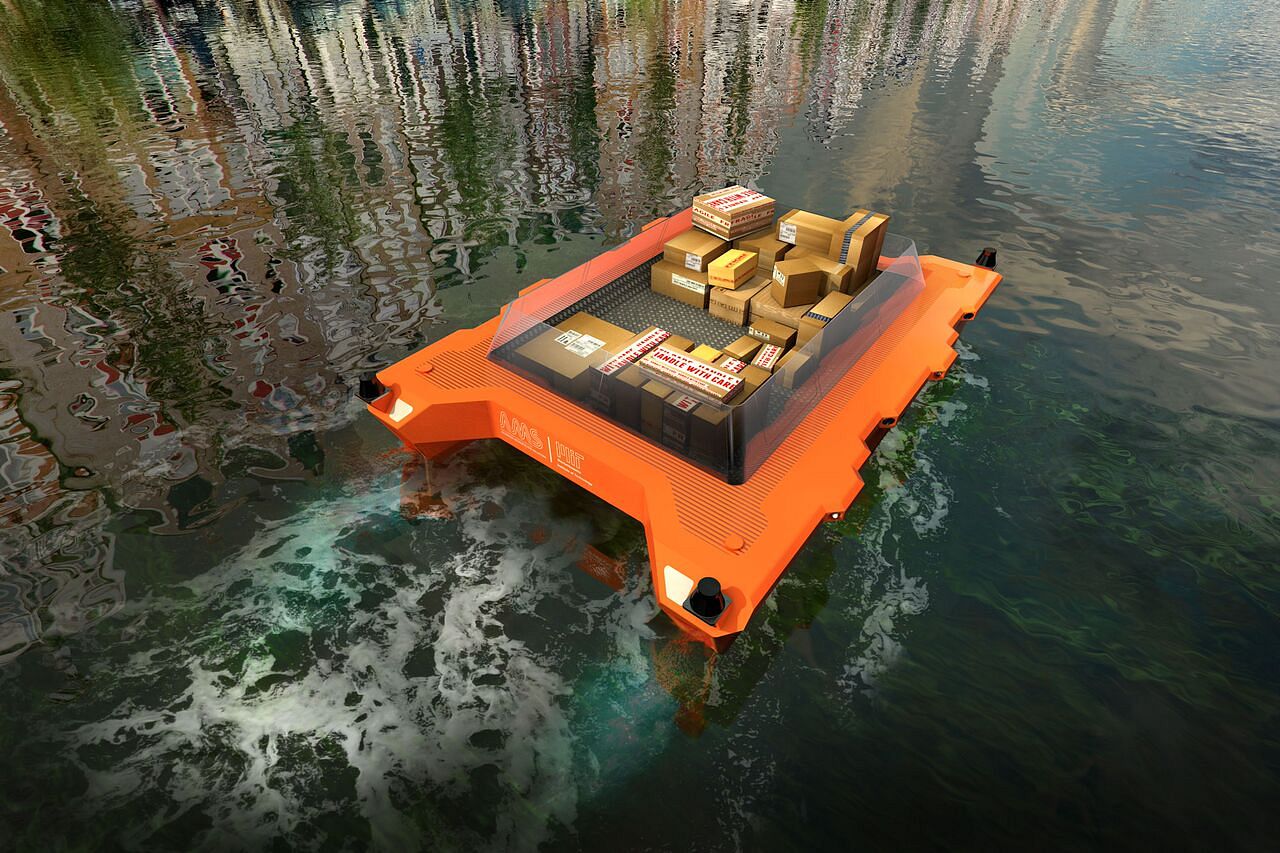Autonomous boats could one day become a common sight on waterways around the world. Two groups from TU Delft are currently in the process of developing these robotic vessels.
Dr. Arjan van Timmeren, who serves as the Chair of the Environmental Technology & Design department and also as the Scientific Director of the AMS Institute, is involved in a project called Roboat. It’s been described as the world’s first major research programme on autonomous floating systems that focuses on everything from transporting people and goods to data gathering. The €25 million undertaking will be conducted over the course of five years and currently involves researchers from TU Delft, the Massachusetts Institute of Technology and Wageningen University.
The group plans to conduct experiments with prototype vessels in the canals of Amsterdam beginning next year. They’re still hammering out the logistics and discussing if the boats, which will be roughly six feet long, can handle everyday traffic in the city’s waterways.
“The researchers at MIT are pressing to do these experiments in the canals under normal conditions,” Dr. Van Timmeren said. “Of course, these tests won’t be with high speeds. It will be very controlled.”
The project hopes to not only research the development of autonomous watercraft similar to self-driving cars but to also create vehicles that can self-organise and construct temporary structures like bridges during festivals and periods of heavy traffic. Roboat’s researchers also aim to further investigate the potential for their vehicles to accomplish tasks that include removing abandoned bicycles from Amsterdam’s canals and even detecting potential epidemics while travelling through sewer systems.
Senior lecturers Klaas Visser and Dr. Rudy Negenborn from 3mE’s Department of Marine and Transport Technology are also involved in a project called ‘Trajectory HOP! Let’s Go Outside.’ Over the next several years, they’ll be launching robotic boats into the waters of the department’s pond. The miniature vessels, which vary in length from 30 to 60 cm, will be used to execute complex manoeuvres similar to the ones much larger cargo ships perform while navigating through harbours.
“The first tests have already been carried out,” Dr. Negenborn said. “We’ll be taking a phased approach and will use more and more ships in the water, each time with more complex functions.”
They hope to be able to get the boats to sail in formation and avoid collisions with both one another and additional obstacles. They’re aiming to eventually grow their fleet to ten autonomous watercraft.
“With ten of these vessels we can consider the crowded situations that appear in the Port of Rotterdam,” Dr. Negenborn said. “By 2020 we are aiming for the ships to autonomously sail cooperatively.”



Comments are closed.